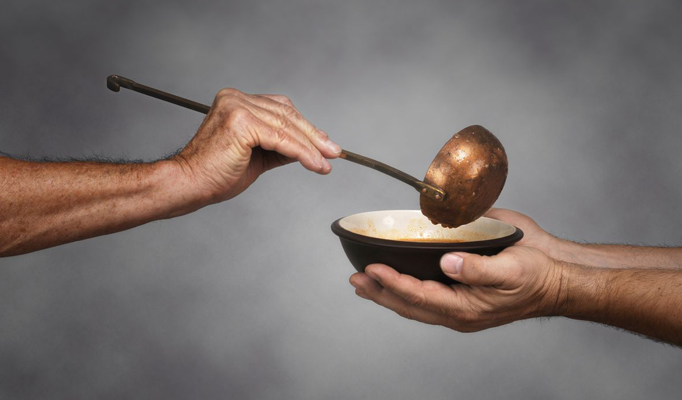
Rick Warren, in his book The Purpose Driven Life said, “it’s not about you” and while I agree that it’s not about us, I also believe that almost all of the time, when God wants us to do something, it benefits us. We may not be able to see it, but it’s usually there. I won’t rule out that the odd time He might ask us to do something solely for the benefit of someone else, or society in general, but even there, I think we often do get something out of it.
So, let’s look at generosity in that context. When we give of our time or money, by definition we are depriving ourselves of what we’ve just given away. We are giving it away so that it’s not available to us. How can that be for our benefit? Off the top of my head a couple of ways that we benefit when we give are:
- Choosing gives us control. Choosing to deprive ourselves of something makes a definitive statement to ourselves that we have a choice. That we are in control. It’s us saying to ourselves, “I can choose to buy this and I can choose to not buy it. It’s my choice. I am the one in control, not my desires.” We may not see it immediately, but in the same way that we know that not letting emotions control us, there is great value in knowing that we have control over our money or over those items that we may or may not choose to spend money on.
- We experience heightened levels of joy. When we sacrifice for others, especially when we see their joy, we often experience a natural heightening in our levels of dopamine, serotonin, oxytocin and endorphins (the happy chemicals that reside naturally in our bodies).
I’ll admit that sometimes I can be kind of shallow. I like it when people give me stuff. I like getting gifts. I go to these conventions sometimes and I love collecting the freebies that they hand out. I really enjoy it when I’m on the receiving end of generosity. I’m betting that sometimes you do too. But when I’m the one giving the gifts, and when I have a good attitude about it (which I almost always do), I get a much bigger jolt of joy than when I’m on the receiving end. I’d love to hear from you to hear your stories whether they back me up or not. But again, I’m betting they will. So, let’s jump back to where we started 2 or 3 months ago:
- God deeply desires that we “Love love”
- Love leads generosity
- Generosity leads joy.
So, it’s worthwhile to ask ourselves, “Do I have joy?” And if the answer to that is “no”, then maybe it’s worthwhile questioning where we are at with the actions that lead to joy. Questions like “am I generous?”, or “am I loving?” might provide us with a clue as to why we’re not joyful, because loving, generous people tend to be joyful.
My pastor loves to say that “emotions are great indicators, but terrible masters.” That sentiment fits perfectly here. Joy should not be our master. Joy is not the end all and the be all. Like Rick Warren said: “it’s not about you.” But joy (or the lack of it) can be a great indicator. The lack of joy may indicate that there are some other deeper areas of our life we should be working on. I started this series trying to avoid “should’s” when discussing the topic of generosity, so let me put it this way: If love leads to generosity and generosity leads to joy and we don’t have joy, then it might be worthwhile to consciously work on our love and our generosity. By strengthening those muscles, it’s likely that joy will follow.
“…the Lord Jesus himself said: ‘It is more blessed to give than to receive.’ ”Acts 20: 30 (NIV)

Leave a Reply